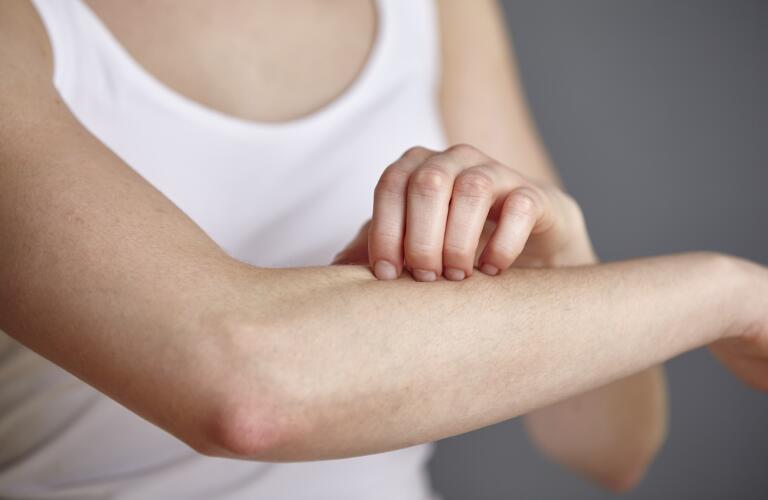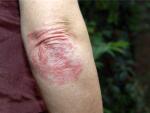
You notice that your skin looks red and inflamed. Is your skin just sensitive? Or are you experiencing an allergic reaction? How do you tell the difference?
It can be tricky, at least at first blush. Some of the signs are very similar. And of course, it’s possible to have sensitive skin and also have an allergic reaction to a particular substance.
But there are some differences, if you take the time to examine the causes of the redness, itchiness, or swelling.
Hallmarks of Sensitive Skin
If your skin is delicate or reacts easily to certain irritants, you probably have sensitive skin.
However, “sensitive skin” means something a little different for every person. People who have sensitive skin do have a few things in common. They often notice that their skin reacts in one or more ways to an irritant:
- Red
- Itchy
- Dry
- Tight
- Tingly
For example, you might notice that your face burns or stings if you wash your face with a certain soap or apply a particular type of sunscreen.
However, people with sensitive skin don’t always react the exact same way or react to the same things. Your trigger is unique to you. That being said, here’s a list of typical triggers for many people with sensitive skin:
- Sunlight
- Wind
- Cold
- Heat
- Stress
- Pollution
If you do have sensitive skin, you’ll definitely want to avoid the triggers that irritate your skin. You may also want to develop a skin care routine that doesn’t aggravate your skin—that might include very gentle soaps and moisturizers that are fragrance-free.
Characteristics of an Allergic Reaction
Meanwhile, you may have perfectly ordinary skin—or dry skin, or oily skin, or acne-prone skin—and don’t even think about the challenges that people with sensitive skin experience on a regular basis.
Until…you experience an allergic reaction. In many cases, some substance has triggered a reaction in your body known as a histamine response. Histamine is a natural chemical that’s released during an allergic reaction. Histamine can cause a number of symptoms that we tend to associate with an allergic reaction, including a runny nose, itchy watery eyes, wheezing or coughing, and even stomach cramps.
Some common skin allergy diagnoses include:
- Hives. Also called urticaria, hives are welts that tend to develop in the superficial layers of the skin as a result of the immune system being triggered and releasing that pesky histamine.
- Angioedema. Angioedema is very similar to hives, but the swelling develops deep underneath the skin, instead of on top of it. It’s possible to experience both angioedema and hives at once.
- Allergic contact dermatitis. Direct contact with an allergen causes this response. If you’ve ever suffered through a case of poison ivy after dashing through the woods, or you developed a rash after wearing a bracelet made with nickel, you’re familiar with this type of allergic reaction. You might have a red swollen rash, or it might be bumpy, itchy, or scaly—or all of the above.
Atopic dermatitis, also known as eczema, is another common type of allergic reaction. However, unlike other types of allergic reactions like hives, it’s not caused by a histamine response. In fact, the exact cause is still unclear, although it’s often linked to the presence of asthma or food allergies. Regardless of the cause, it can make your skin itchy and dry, and if you scratch it, it can get infected, weeping fluid that dries into crust.
Is there something else that could be going on?
You might have sensitive skin. Or you might have allergies that cause your skin to turn red or itchy. Maybe you can rule out an allergen or irritant. But it is also possible you could suffer from a skin condition like rosacea. Rosacea can also cause redness, swelling and irritation in your skin. It will make your skin very sensitive, and you may notice that what starts out as a blush or flush will remain red for a long periods of time. Sometimes, you’ll even get broken capillaries. Because there are about four different subtypes of rosacea, the treatment will vary, which makes it important to see a doctor for a correct diagnosis.
Still uncertain about what’s causing your skin to get red or itchy or swollen at various times? Definitely consult your doctor. It might be useful to undergo some allergy testing, even if it’s just to rule out possible allergens. If it turns out that your skin really is just sensitive and nothing else is wrong, you can take steps to pamper your skin and reduce the chances of irritating it.





















